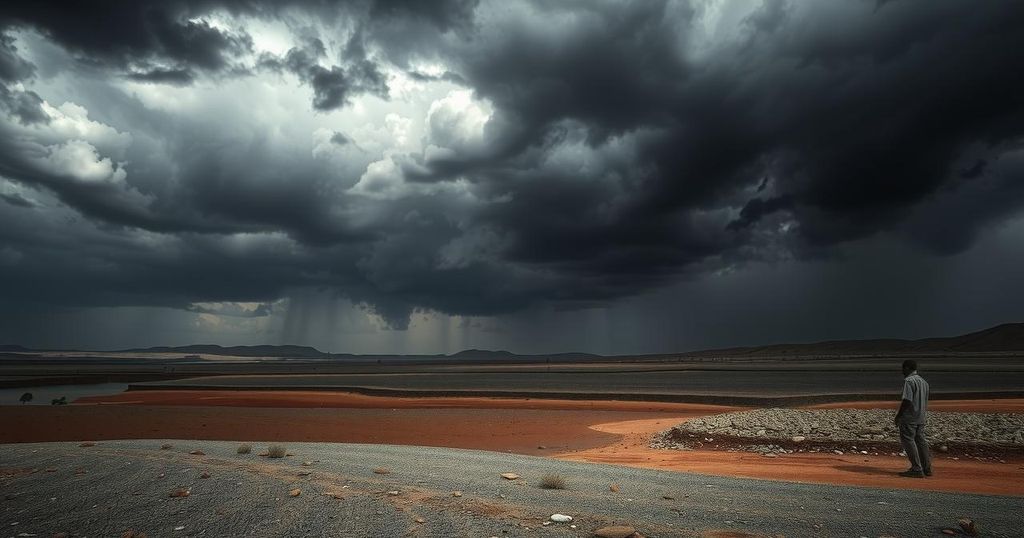South Sudan Faces Tension After Arrest of First Vice President Riek Machar
The arrest of South Sudan’s First Vice President, Riek Machar, has heightened fears of imminent conflict in the nation. Concerns arise from a faltering power-sharing deal with President Salva Kiir, prompting international warnings. Escalating violence and tensions between rival factions further complicate the situation, as locals express worry over a return to warfare. Ambiguous political maneuvers indicate an urgent need for dialogue between the nation’s leaders.
The recent arrest of South Sudan’s First Vice President Riek Machar has raised alarms, with the United Nations warning that the country stands on the verge of widespread conflict. He was detained on Wednesday when a convoy of heavily armed vehicles stormed his residence in Juba, signaling a severe escalation of ongoing tensions within the nation. The fragile power-sharing agreement between President Salva Kiir and Machar, established to end a previous civil war, has begun to unravel, stirring fears of a return to violence.
Machar’s political party condemned the actions taken during his arrest, describing it as unconstitutional. A statement revealed that his bodyguards were disarmed and that he was presented with an arrest warrant under ambiguous charges. Reports indicate that there are efforts underway to relocate him amidst ongoing political instability. The UN Mission in South Sudan issued a statement reflecting the precarious nature of the situation, emphasizing that the country’s leadership is on the brink of another conflict.
In recent weeks, tensions between the factions loyal to Machar and Kiir have escalated, with violent confrontations reported in areas like Nasir County. Supporters of Machar assert that their military training centers around Juba have come under assault by government forces, which they characterize as acts of terrorism. Despite these claims, the Kiir-aligned South Sudan People’s Defence Forces have not confirmed these incidents.
Concerns continue to grow among Juba’s populace regarding the increasing instability. Local residents express trepidation that recent events could rekindle war instead of fostering peace. While President Kiir has voiced a commitment to peace, violence has surged in Nasir County due to clashes with militias allied to Machar.
Experts, including the International Crisis Group’s senior analyst Daniel Akech, highlight the refusal of both leaders to pursue dialogue amidst persistent violence. This lack of engagement, despite international pressure, represents a ‘red warning’ sign for the nation. If conflict re-emerges, Akech warns it could become highly decentralized and challenging to control, leading to widespread chaos in the region. In response to the deteriorating security situation, several foreign embassies have reduced their staff and advised citizens to leave South Sudan.
The arrest of Riek Machar signifies a critical juncture for South Sudan, with the potential for renewed conflict looming heavily. As political instability escalates, the actions of the government and the responses of international observers will be pivotal in determining the future of peace in the nation. It is imperative for the leadership of South Sudan to prioritize dialogue to avert a descent back into civil strife and uphold the tenets of the previous peace agreements.
Original Source: www.kpvi.com




Post Comment